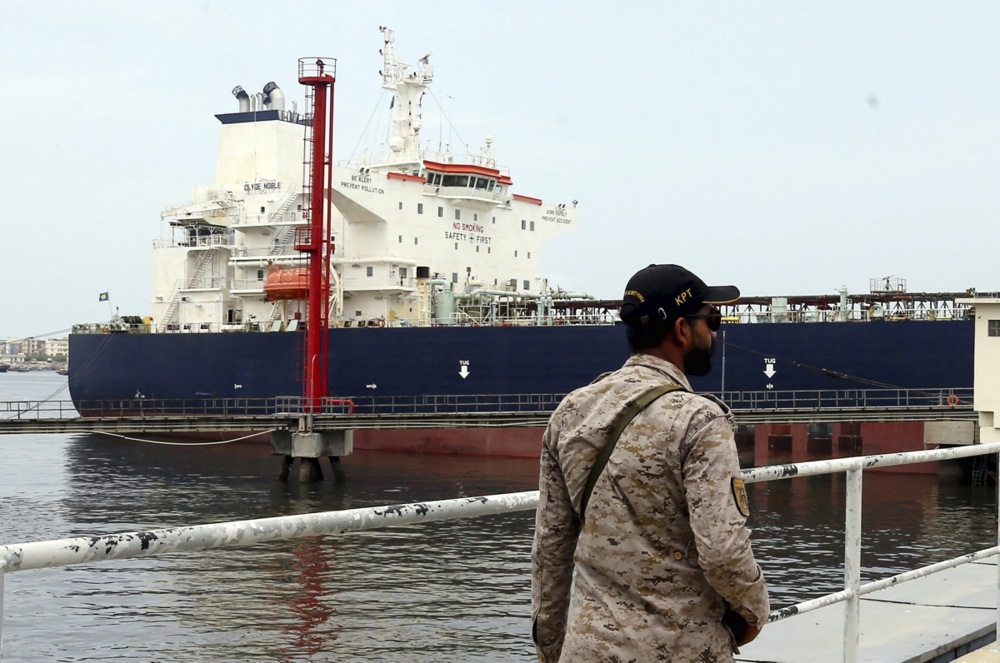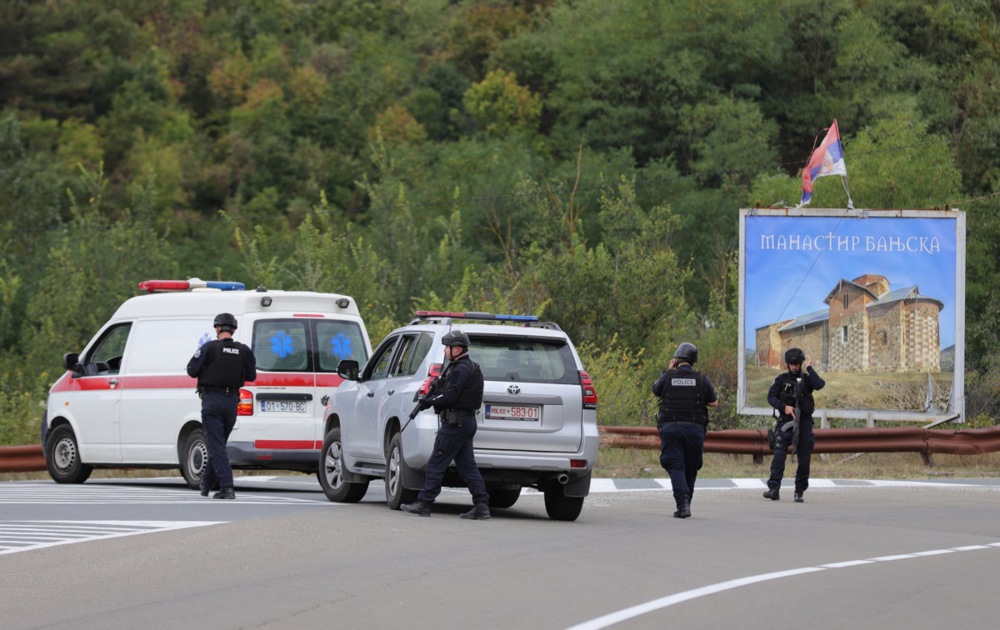The deadly shootout in Kosovo on September 24 between heavily armed ethnic Serbs and Kosovar police now gives authorities in the capital Pristina the upper hand against the European Union, analysts have told Brussels Signal.
The EU is “perceived as ineffective by Kosovo” and the latest events “put it in a difficult position”, said the research head of Raiffeisen Bank Albania, Fjorent Rrushi.
The latest violence looks to have derailed a lengthy process of arduous EU mediation. Early last year talks had yielded a tacit agreement between Belgrade and Pristina to normalise their relations and a roadmap of how to go about this.
The EU had been pressing Kosovo to reduce its police force in the North, which is home to about half of Kosovo’s 100,000-strong Serbian minority. Kosovar Albanians make up approximately 93 per cent of Kosovo’s population.
The shootout, which began at Banjska Monastery in Northern Kosovo, saw a group of about 30 Serbian militants involved in a firefight with Kosovo police that killed one officer and injured three others.
Police then seized a weapons cache that Kosovo’s interior minister Xhelal Svecla described as sufficient to equip several hundred gunmen.
The EU was “advocating reduction of special police forces in the North, but when you have Serbian commandos there this position is untenable”, said Rrushi.
In February 2022, High Representative of the EU for Foreign Affairs and Security Policy Josep Borrell brokered a 10-point plan between the two countries.
Under that, Serbia would not block its former breakaway province Kosovo from joining international organisations and would recognise its passports and vehicle registration plates. Kosovo, in turn, would allow measures of self-governance by its Serbian minority.
Since local elections in Kosovo in April, Kosovo had evolved into an “inflammable stalemate” said Andrius Tursa, a political-risk consultant specialising in the region at UK-based Teneo.
Serbian parties boycotted the elections, saying they had not seen evidence of their promised autonomy. All mayors of cities with predominant Serbian majorities are now Albanians.
EU officials and NATO peacekeeping forces have both been in “crisis management mode” in recent months, said Tursa.
In mid-September, Borrell blamed Kosovo after an unproductive round of talks with Serbia was held in Brussels.
Kosovo’s Prime Minister Albin Kurti rejected an EU proposal for an Association of Serbian Municipalities in Northern Kosovo, which Serbian President Aleksandar Vučić had accepted.
Kurti described the EU proposal as biased towards Serbia.
The shooting has “fundamentally turned the tables on Belgrade and Pristina, with the latter now having the upper hand and the former being on the defensive”, said Tursa.
Rrushi said Kurti “comes out in a stronger negotiating position”.
Belgrade had “shot itself on the foot” with the latest violence, and authorities there “have lost all the capital accumulated until now”, he added.
The EU, after calling on Pristina to reduce its police in the North and criticising it for rejecting its autonomy proposal, had also lost credibility with a Kosovo that now regarded itself as victim of a state-backed terrorist attack, Rrushi said.
Kurti said Serbia had deployed “organised professional forces” for “terrorist attacks”.
Rrushi said that with EU diplomacy on the issue now side-lined, the US “could be involved more as Kosovo trusts them more”.
Tursa added that the vacuum left by the EU meant the possibility of Russian meddling in Kosovo “cannot be ruled out”.
Destabilisation in Western Balkans “could benefit Moscow as it would distract the EU’s attention from the war in Ukraine”, he argued.





Western leaders have lost the art of diplomacy – Donald Trump is one of the few who gets it